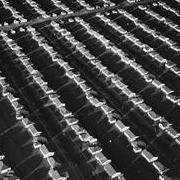-
Posts
11 -
Joined
-
Last visited
About ManifestMidwest
- Birthday 06/05/1995
Profile Information
-
Gender
Male
-
Location
Boston, MA
-
Interests
Modern France; French Colonialism & Imperialism; Pacific Worlds
-
Application Season
Already Attending
-
Program
World History, PhD
Recent Profile Visitors
756 profile views
ManifestMidwest's Achievements

Decaf (2/10)
2
Reputation
-
World history (or, to some, "global history") is growing massively at the moment, as well as digital history. One problem with many world history scholars is that they do not have much training in it, so they often don't recognize that it is a field in itself rather than a methodology and therefore miss a ton of historiographical debates. There are only a few programs in the US that currently do this, but they are growing increasingly quickly. David Armitage has endorsed it, Sebastian Conrad has a great book as an introduction to the subject, the California School brought some attention to the field in the 00s, and imperial history has also been a focal point of world history.
-
Hi all, I'm a graduate student that just began my PhD program in September, and I was wondering how you all know exactly how much (and what) is published in your field each year? I follow book reviews in my field's journals, but those tend to be protracted, often having reviews a year or more after the book was published. I've been reading in my field immensely since beginning my program, but I am trying to figure out how much is published each year so I can keep up to date, and I'm having trouble doing so. How do you all manage this?
-
 SpeechLaedy reacted to a post in a topic:
SOP length
SpeechLaedy reacted to a post in a topic:
SOP length
-
 ManifestMidwest reacted to a post in a topic:
Has history as a dscipline been diluted?
ManifestMidwest reacted to a post in a topic:
Has history as a dscipline been diluted?
-
 ManifestMidwest reacted to a post in a topic:
Has history as a dscipline been diluted?
ManifestMidwest reacted to a post in a topic:
Has history as a dscipline been diluted?
-
 ManifestMidwest reacted to a post in a topic:
Has history as a dscipline been diluted?
ManifestMidwest reacted to a post in a topic:
Has history as a dscipline been diluted?
-
 ManifestMidwest reacted to a post in a topic:
Has history as a dscipline been diluted?
ManifestMidwest reacted to a post in a topic:
Has history as a dscipline been diluted?
-
I really love Evernote, and I find it to be one of the most important tools I use, as it lets me sync my work across computers (I do this with Dropbox as well). With Evernote, I take notes on two or three book reviews and the table of contents before I read the text, and then some general notes as I read. At the end, I write a single-page, single-spaced critical essay of each book that I read. In the essay, I survey the author's arguments, sources used, how it fits into the scholarship, and any criticisms that I have.
-
 ManifestMidwest reacted to a post in a topic:
SOP length
ManifestMidwest reacted to a post in a topic:
SOP length
-
 ImHis reacted to a post in a topic:
SOP length
ImHis reacted to a post in a topic:
SOP length
-
 ManifestMidwest reacted to a post in a topic:
Fat-Friendly Campuses?
ManifestMidwest reacted to a post in a topic:
Fat-Friendly Campuses?
-
 ManifestMidwest reacted to a post in a topic:
Fat-Friendly Campuses?
ManifestMidwest reacted to a post in a topic:
Fat-Friendly Campuses?
-
 ManifestMidwest reacted to a post in a topic:
Fat-Friendly Campuses?
ManifestMidwest reacted to a post in a topic:
Fat-Friendly Campuses?
-
 ManifestMidwest reacted to a post in a topic:
Fat-Friendly Campuses?
ManifestMidwest reacted to a post in a topic:
Fat-Friendly Campuses?
-
 ManifestMidwest reacted to a post in a topic:
Fat-Friendly Campuses?
ManifestMidwest reacted to a post in a topic:
Fat-Friendly Campuses?
-
It really depends on the university you're applying to. Do you have another essay where you would clarify this? If not, it must be done here. I don't know which field you're in, but I'll name off a few examples from a variety of programs. For one, the biggest reason why students apply to various schools is due to the faculty members that are there. For example, I'm doing a PhD in history and the reason why I applied to my program is because of two faculty members who are quite high profile. You could name different resources the university has (a specific library? technology that may be useful to scientific research? institutes or funding that the university has access to?), the location could be another reason to apply (for example, my colleague came to my university because Boston, and the Northeast more broadly, has a wealth of information on Irish-American immigration). You may be able to think outside the box here, but your reasoning for applying to the university may make or break your application. If it were earlier in the season, I would recommend getting in touch with professors you may be interested in working with. You can still do this now, but it may be fruitless at this point.
-
Try to keep it two or less, ideally size 12, Times New Roman, double-spaced. The goal here is to be as concise as possible. Explain briefly what you've done before, where you see it going in Grad School, and why the university you're applying to is the best place to go for that.
-
I'm in my first year in a PhD program with 9 hours per week. My reading has really varied depending on the class. My Atlantic World and Methodology classes were both around 500 pages of reading per week, but my Digital History course had far less (because it was a bit more practical). However, next semester I'll have significantly more. I'm doing a Methodology of World History which is a book per week, plus two books in addition to the regular load; a research seminar, which is a book per week plus research; and a directed study in my main area where the prof wants me to do 4-5 books per week, so that'll be about 56 books for the fourteen-week semester. Altogether, I'm looking at nearly one hundred books for the semester. I don't know if this is the norm, but it should be manageable, for the most part. From my own experience, it's best to try for 4-5 books per week plus some journal articles.
-
I've been reading quite a few things lately, including Latour, Reassembling the Social Starn, Ishi's Brain Gorky, Mother
-

What are/were your comprehensive exams?
ManifestMidwest replied to ManifestMidwest's topic in History
Are you doing United States history, Latin American history, or somewhere else? -
I did not study abroad at all before coming to graduate school. I would just make sure you have language skills necessary. However, some fields (e.g. the Atlantic World) may require you to have experience in multiple countries due to the trans-nationality of the required projects. As an early modern Germanist, you should be just fine staying in the United States. The only key stipulation would be to get good at German while you're in undergrad. This skill can make or break your application.
-
I'm merely a first year in my PhD program, but I was wondering what everyone did for their comprehensive exams. You don't have to share your reading lists, but it'd be interesting to see everyone's fields.



